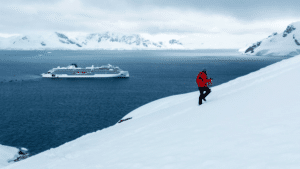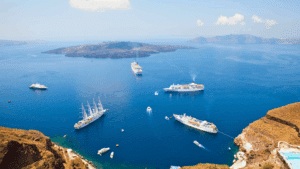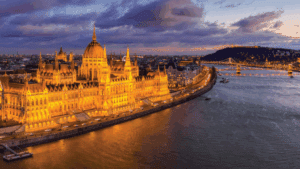Home » Cruisetalks » Polar Cruises: Arctic vs. Antarctic
- Cruisetalks
Polar Cruises: Arctic vs. Antarctic — A Complete Guide to the Ultimate Polar Adventure

Gina Teo
Author
On This Page
Few experiences can rival the thrill of standing at the edge of the world, surrounded by vast expanses of ice, towering glaciers, and surreal wildlife. Polar cruises to the Arctic and Antarctic offer travellers a front-row seat to nature’s most dramatic landscapes. Whether you’re drawn to the Arctic’s mix of culture and wildlife or Antarctica’s pristine isolation, both destinations promise an adventure unlike any other.
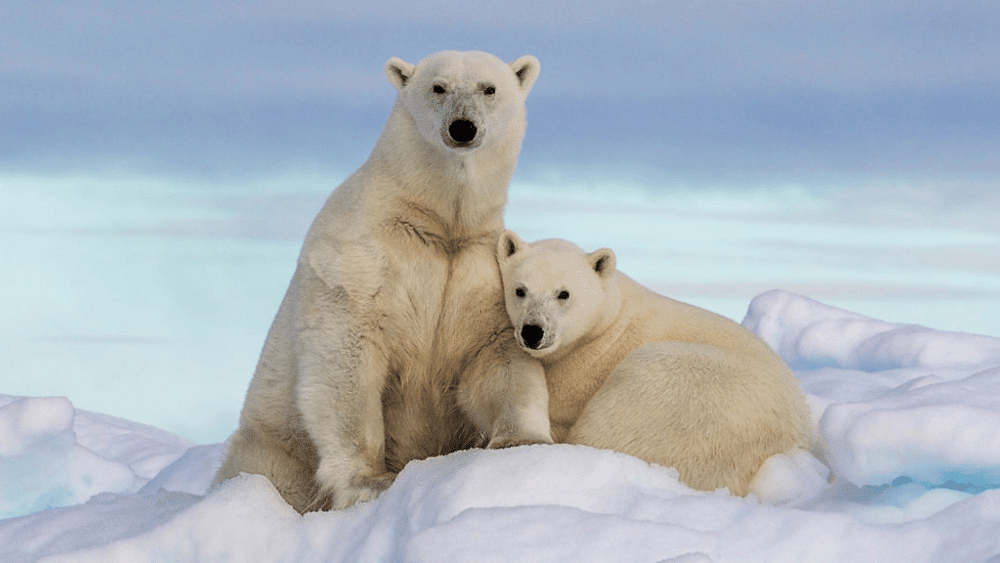
Share:
Why Polar Cruises Are Rising in Popularity
With the growing demand for sustainable and experiential travel, more adventurers are seeking journeys that go beyond sightseeing. Polar cruises deliver exactly that — a combination of education, adventure, and awe. Modern expedition ships equipped with advanced navigation and environmental technologies make it easier than ever to explore safely while minimising ecological impact.
Understanding the Poles
The Arctic — A World of Ice and Culture
The Arctic isn’t a single landmass but a frozen ocean surrounded by continents. It encompasses parts of Norway, Greenland, Canada, Alaska, and Russia, creating a diverse cultural and ecological mosaic. Here, you can meet Indigenous communities, witness polar bears in the wild, and sail through dramatic fjords under the midnight sun.
Climate & Seasons:
Summer brings 24-hour daylight and mild temperatures, ideal for cruising between June and September. Winters are long and dark but rich in aurora borealis displays.
The Antarctic — The Frozen Continent
Antarctica, on the other hand, is a continent buried under a thick ice sheet, home to breathtaking glaciers, massive icebergs, and colonies of penguins. Unlike the Arctic, it has no permanent human population, only scientists stationed at research bases.
Climate & Seasons:
Cruising season runs from November to March, when sea ice recedes, allowing ships to navigate the icy waters.
Key Differences Between Arctic and Antarctic Cruises
Location and Accessibility
The Arctic is relatively accessible, with departures from ports like Tromsø, Reykjavik, and Longyearbyen. The Antarctic, however, requires a flight to Ushuaia, Argentina — the gateway to the Southern Ocean. A handful of luxury itineraries offer fly-cruise options that bypass the often-rough Drake Passage.
Landscapes and Scenery
The Arctic’s terrain is diverse — from green tundra and rugged cliffs to icy fjords. The Antarctic landscape feels otherworldly, defined by massive glaciers and endless white plains. Each offers photographers and nature lovers stunning visual contrasts.
Wildlife Encounters
This is where the poles truly differ: polar bears roam the Arctic, while penguins rule the Antarctic. Both regions offer sightings of whales, seals, and seabirds, but the experience is distinct. In the Arctic, you might witness reindeer or arctic foxes; in the Antarctic, you’ll marvel at leopard seals and emperor penguins.
Human Presence
In the Arctic, centuries of habitation have shaped local cultures and traditions. Travelers often visit small villages or meet Indigenous groups like the Inuit. The Antarctic, by contrast, is uninhabited except for researchers, offering a sense of solitude unmatched anywhere else on Earth.
Cruise Experiences and Itineraries
Arctic Cruise Routes
Popular itineraries explore Norway’s Svalbard, Iceland’s coast, Greenland’s fjords, and the Canadian Arctic Archipelago. Some expeditions even attempt to reach the North Pole, an achievement that few travellers ever experience.
Antarctic Cruise Routes
Most cruises explore the Antarctic Peninsula, where towering icebergs and wildlife colonies abound. Longer voyages include South Georgia and the Falkland Islands — historic sites tied to explorers like Shackleton.
Duration and Seasonality
Arctic cruises typically last 8–14 days, while Antarctic journeys can stretch to 20 days or more. Summer months in both hemispheres are the ideal travel windows.
Onboard Life and Adventure Activities
Life Aboard a Polar Expedition Ship
Expedition vessels blend comfort with exploration. Expect warm cabins, gourmet dining, and expert-led lectures on glaciology, wildlife, and history. The atmosphere is casual yet intellectually stimulating.
Excursions and Shore Landings
Most adventures include daily excursions via Zodiac boats — small inflatable craft that bring guests close to wildlife and ice formations. Activities such as kayaking, ice hiking, and even camping on the ice provide unforgettable thrills.
Luxury vs. Expedition Cruises
Today’s travellers can choose between rugged expedition-style voyages or high-end luxury cruises featuring spas, fine dining, and private balconies. Leading operators like Quark Expeditions, Ponant, and Silversea set the benchmark for 2025.
Choosing Between the Arctic and Antarctic
Factors to Consider
Budget, interests, and travel style all influence the choice. The Arctic offers cultural immersion and varied landscapes; the Antarctic offers pristine isolation and unmatched wildlife.
Who Should Choose the Arctic
If you crave diversity — landscapes, cultures, and wildlife — the Arctic is your ideal pick. You’ll encounter polar bears, whales, and Indigenous communities, all within reach of Northern Europe.
Who Should Choose the Antarctic
For those seeking pure wilderness and silence, Antarctica is the ultimate destination. Every moment feels like stepping into another planet, where penguins outnumber people and ice reigns supreme.
Environmental Impact and Responsible Travel
Sustainable Cruising Practices
Reputable operators follow strict sustainability standards set by organisations like IAATO (International Association of Antarctica Tour Operators) and AECO (Association of Arctic Expedition Cruise Operators). These ensure minimal disturbance to ecosystems.
Supporting Conservation Efforts
Travellers can contribute by choosing eco-certified cruises, avoiding single-use plastics, and participating in onboard citizen science projects.
Who Should Choose the Antarctic
For those seeking pure wilderness and silence, Antarctica is the ultimate destination. Every moment feels like stepping into another planet, where penguins outnumber people and ice reigns supreme.
Preparing for a Polar Cruise
Essential Gear and Clothing
Pack for layering — moisture-wicking base layers, insulating mid-layers, and waterproof outer shells. Good boots and gloves are must-haves.
Health and Safety Considerations
Expedition ships are equipped with medical facilities, but comprehensive travel insurance is non-negotiable. Seasickness can occur, especially when crossing the Drake Passage.
Travel Tips for First-Time Polar Explorers
Book early — prime cabins and limited itineraries sell out months in advance. Always travel with an open mind; weather and ice conditions can alter plans, but flexibility leads to the best stories.
Embark on an unforgettable adventure
Both the Arctic and Antarctic offer journeys beyond imagination — raw, humbling, and profoundly transformative. Whether you’re standing under the Northern Lights or among a penguin colony, these experiences connect you deeply to our planet’s fragile beauty. Choose your pole, pack your sense of wonder, and embark on an adventure that will stay with you forever.
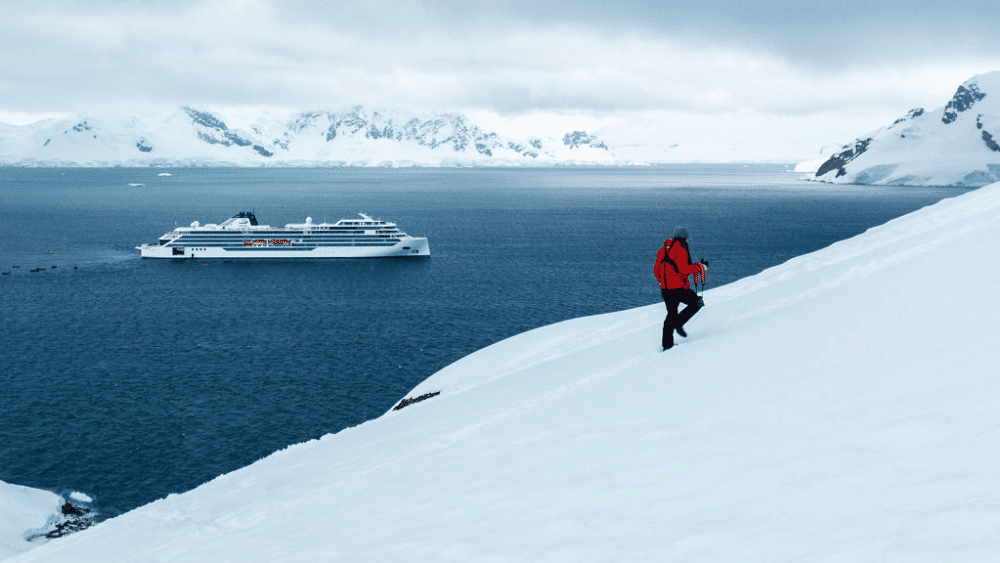
Frequently Asked Questions
What is the best time to go on a polar cruise?
The Arctic is best from June to September; the Antarctic season runs from November to March.
How close do you get to wildlife?
Very close — often within meters via Zodiac landings, while respecting strict distance regulations.
What is the dress code onboard expedition ships?
Casual and practical — comfort and warmth are priorities.
How eco-friendly are polar cruises today?
Modern ships use cleaner fuels, waste management systems, and carbon offset programs to reduce impact.
What makes a polar cruise a once-in-a-lifetime experience?
The combination of remoteness, wildlife encounters, and natural beauty creates an emotional journey that few other destinations can match.
More of Cruisetalks
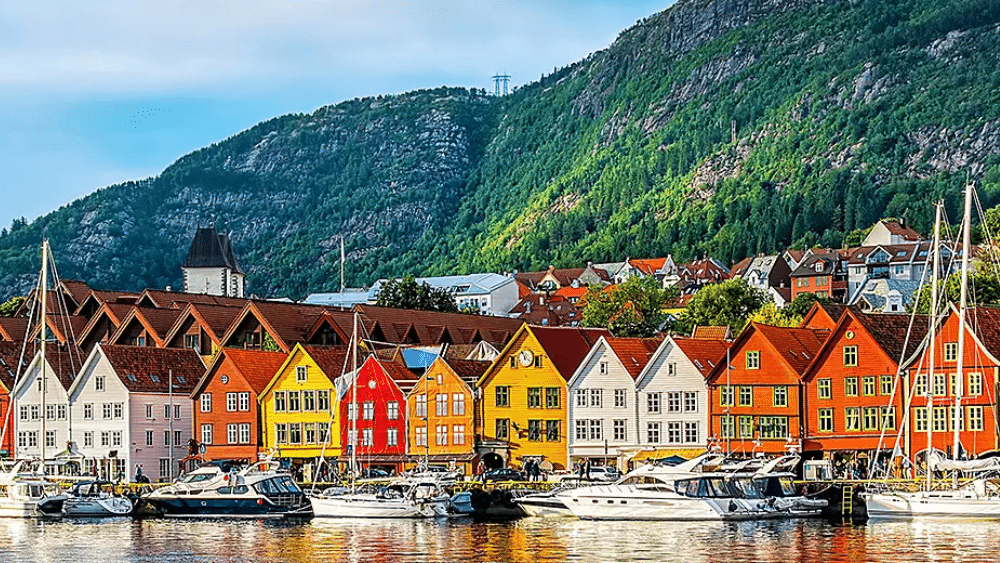
Best Time to Book a Cruise: Seasonal Tips for 2025
Find out the best time to book a cruise in 2025. Save money and enjoy the best deals with Port
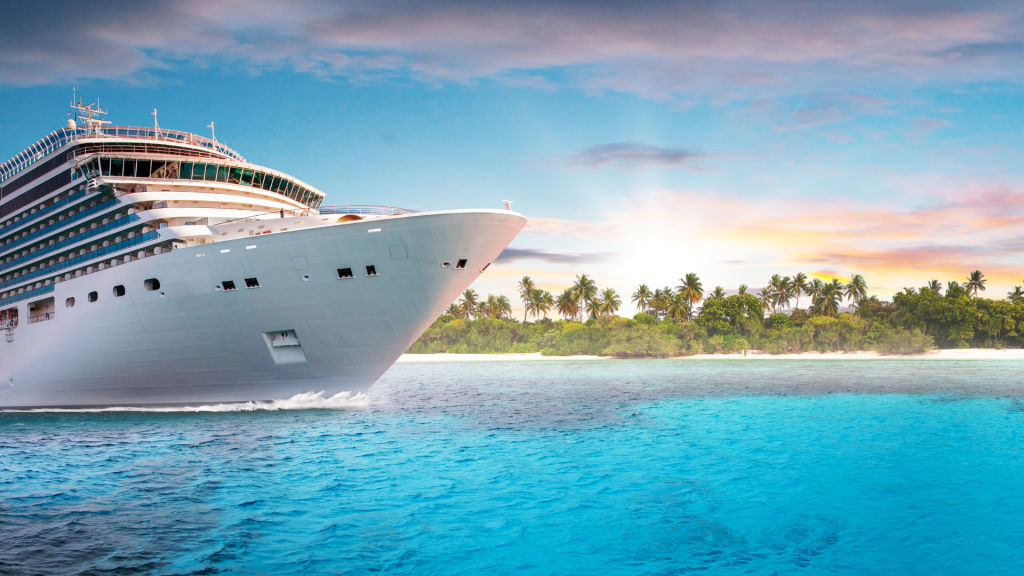
Exclusive Cruise Singapore Deals: Your Gateway to Adventure
The international cruise offers diverse experiences.. It stands out as an enticing option for travellers seeking unparalleled adventure and luxury.
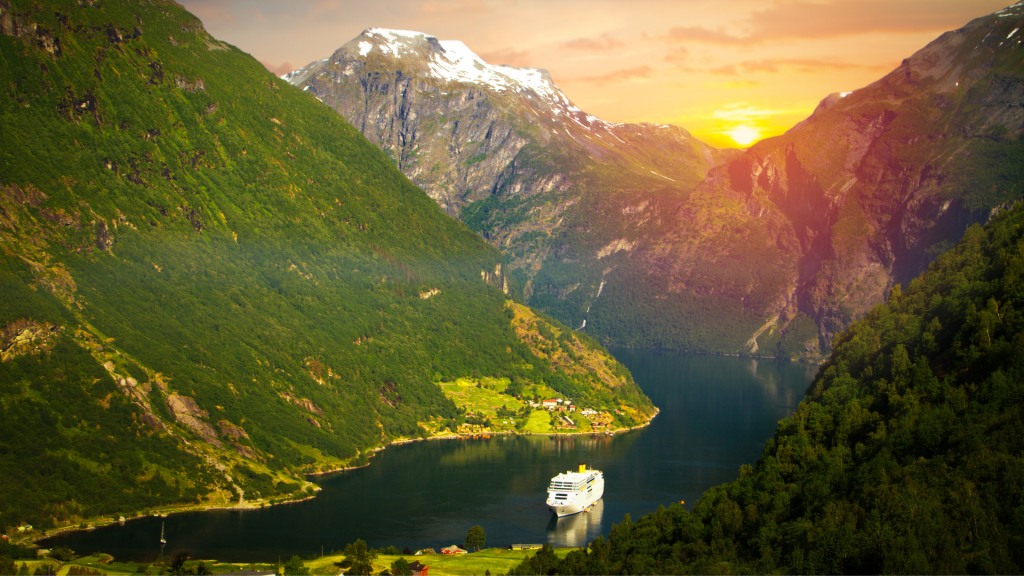
Best Cruise Singapore: Discover the best Adventures
The world of cruise adventures is a kaleidoscope of experiences—whether it’s the thrill of exploring natural wonders, indulging in cultural
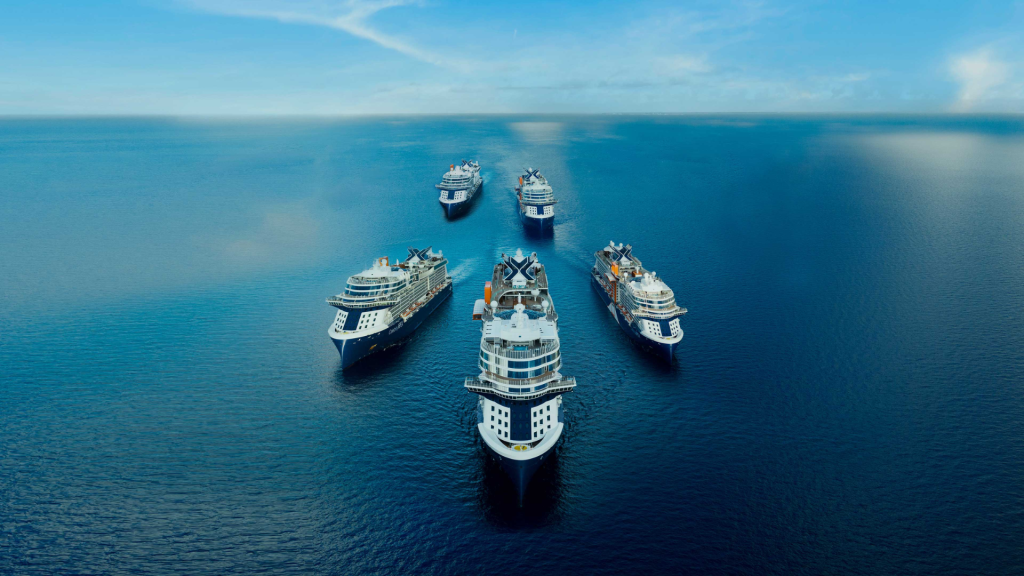
Celebrity Cruise Singapore: Where to Book?
Embarking on a Celebrity Cruise in Singapore is a dream come true for many travellers seeking luxury, adventure, and unforgettable
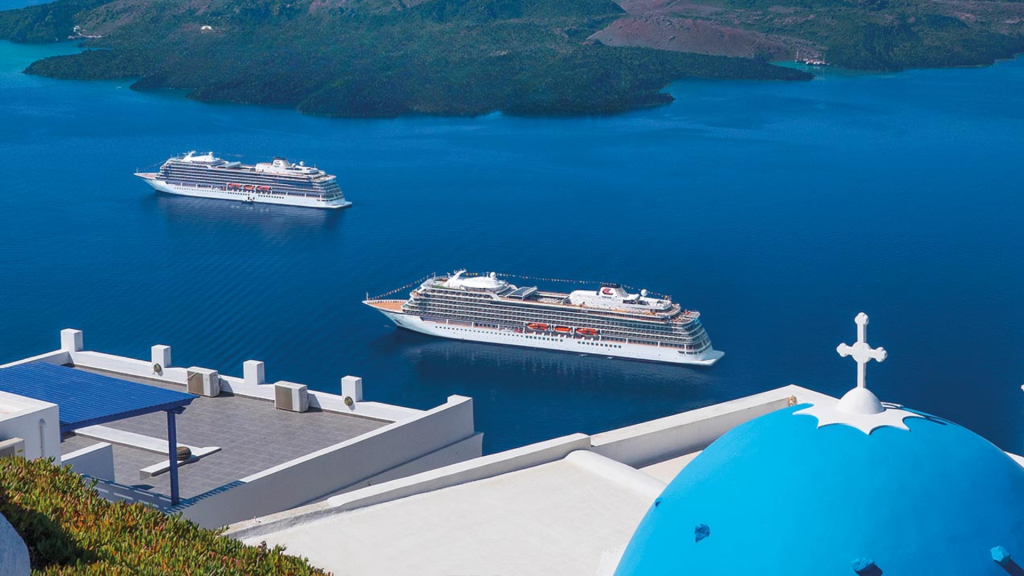
Viking Cruises: Everything You Need to Know
Viking Cruises is a renowned cruise line that offers travellers an unparalleled experience exploring some of the world’s most beautiful
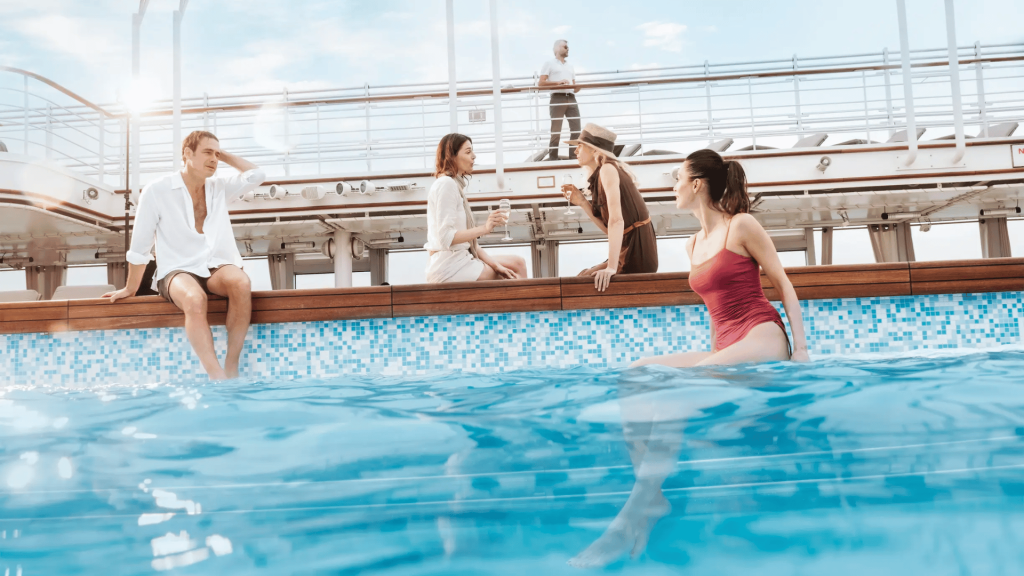
What Makes Luxury Cruises from Singapore So Special?
Embark on an unforgettable journey of luxury cruises from Singapore. Discover opulent amenities, exclusive destinations lavish getaway!

